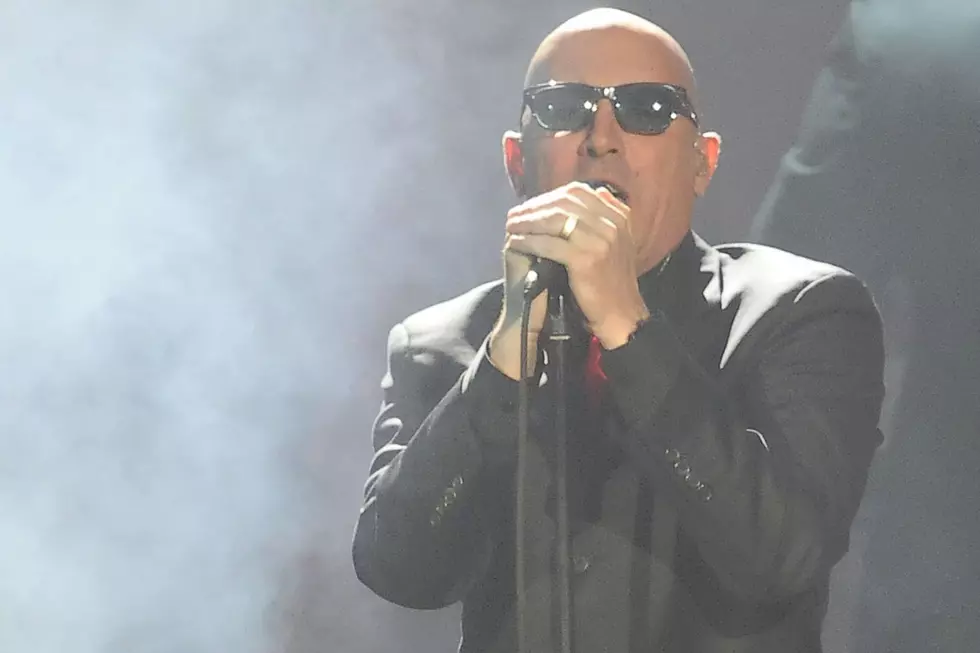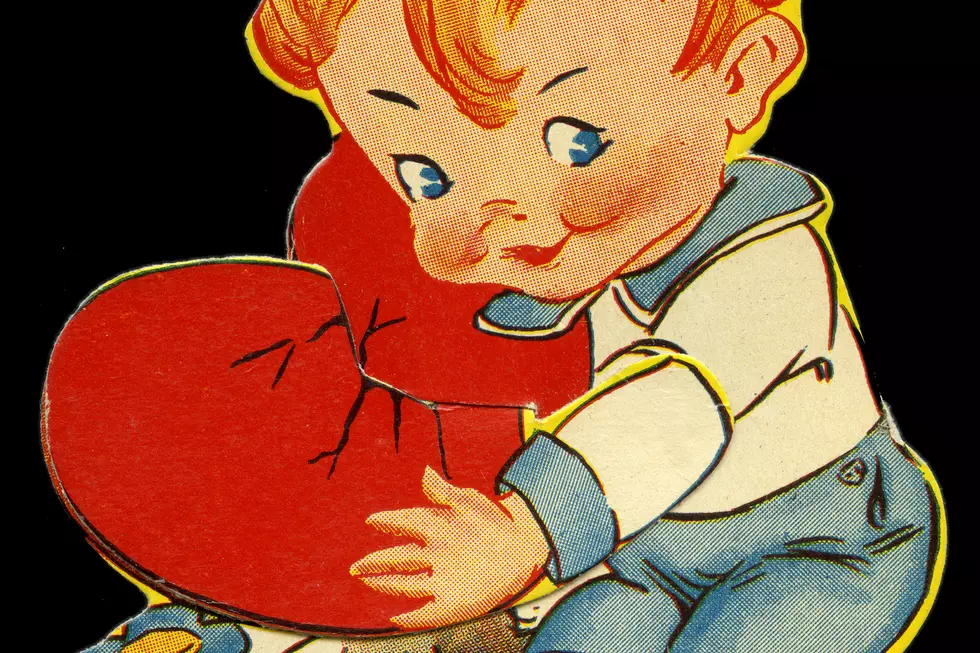
10 Bands That Sound Absolutely Nothing Like They Used To
Rock fans are fickle SOBs. Some will argue against the merits of a band whose sound changes drastically over its career, while others will loyally follow it throughout, no matter what. Take the Police: If you listen to that first album (‘Outlandos d’Amour’), they’re basically a punk band with Sting as the lead singer. By the time ‘Synchronicity’ rolled around, they were all about the synths, and Sting was sailing high on the Mothership Egomaniac. We here at Diffuser.fm celebrate the transformations of such shape-shifters, and here, we salute 10 Bands That Sound Absolutely Nothing Like They Used To. For each, we've posted a video highlighting their new sound and a link to an older jam, so that you might compare, contrast and, of course, judge.
Wilco
When Wilco emerged from the ashes of Uncle Tupelo back in 1994, they were largely an alt-country outfit -- with lap steels, fiddles, bendy leads and acoustic guitars, filling out their sound. In other words, traditional country-rock, a la the Flying Burrito Brothers. But as the band got older, members came and went, and its sound matured, and its roots began to change. Krautrock, progressive and jam-band aesthetics made their way in. The Wilco you hear today is worlds away from the one you heard way back when.
Kings of Leon
Kings of Leon came up in the dirty garage rock revival of the early aughts (that we can basically thank the Strokes for), with a sound that was sparse -- bordering on sloppy -- and full of images of teenage angst, lust and love. Lead singer Caleb Followill had a voice like John Fogerty's, but turn the clock forward to ‘Because of the Times’ and ‘Only By the Night,’ and the band had pretty much shed its boyish image and gone Big Friendly Pop with giant tunes like ‘On Call’ and ‘Sex On Fire.’
The Strokes
Although we hadn’t heard from the Strokes in two years before they dropped their latest album, ‘Comedown Machine,’ it was obvious from hearing lead singer Julian Casablanca’s solo project, ‘Phrazes For the Young,' that he was leaning more heavily toward dancy, beat-oriented music than he was on refined ’70s cock rock. The stripped-down ‘70s-style retro feel of ‘Is This It’ made an indelible mark on the music business -- and has all but disappeared over the years.
Beck
‘Loser’ was a surprise hit for the young Beck Hansen, who owned the ’90s with his bizarro folk, rap and rock stylings. And although he definitely kept the weird flowing out of the tap through the early aughts, his sound got decidedly more straightforward and structured on albums like ‘Mutations’ (for which he won a Grammy) and ‘Sea Change,’ his breakup record. Both are serious acoustic sets, with mere remnants of his freaky hip-hop past in evidence. Add in the latest ‘Song Reader’ project (which was more Stephen Foster than anything), and you have yourself a completely new artist altogether.
Deer Tick
Rhode Island's Deer Tick started out as the brainchild of singer-songwriter John McCauley, a folky acoustic balladeer who landed on his first few albums somewhere between the Replacements and Gram Parsons. But you crank up 2011’s ‘Divine Providence’ and take a gander at some of the tracks the band’s been playing live from their forthcoming ‘Negativity,’ and the electric guitars (and grunge) get cranked up to 12. McCauley’s Nirvana worship may be rubbing off finally.
Jimmy Eat World
On their debut release, the lead singer of Jimmy Eat World was actually guitarist Tom Linton, who would later give up the vox reins to bandmate Jim Adkins. (Linton pops up singing lead on ‘Blister’ from the groundbreaking emo album ‘Clarity.’) The entire shape of the band’s sound changed around Adkins’ more introspective lyrics and boyish, emotive voice, which always seems to crack at the right moments.
The Shins
When James Mercer’s side-project the Shins (named for a song from his then-band Flake Music’s debut album) took off in 1997, it was largely an acoustic outfit, with flecks of electric gold throughout. Its decidedly indie retro vibe made all the rock magazines swoon. By the time 2012’s ‘Port of Morrow’ came out, the original lineup, save for Mercer, had left, and the band’s sound had grown much more electronic, due in part to Mercer’s side-project with DJ Danger Mouse, Broken Bells. (We liked them a lot more without all the keytars.)
R.E.M.
College-rock gods R.E.M. took the DIY aesthetic to the Nth degree in the ’80s, with a sparse sound that echoed Big Star, the Byrds, and other Baroque power-pop progenitors. Above all, they were not a very BIG sounding band -- they were a tight four-piece with lots of soul. Not so on their later albums, especially the ones that dropped in the 2000s, which gave way to a U2-type aesthetic: Big for big’s sake, critics be damned.
Red Hot Chili Peppers
When the Red Hot Chili Peppers broke through the malaise that was the early-’80s California rock scene, they were, without a doubt, a band steeped in the jazz/funk of the greats like George Clinton and Parliament Funkadelic. You could smell the maggot brains on them. Listen to them now, and although they still bring bits and pieces of the funk, they are primarily an anthemic pop band -- as can be heard on latter-day albums like double-shot ‘Stadium Arcadium,’ ‘Californication,’ and ‘By the Way.’
The Gaslight Anthem
When New Jersey’s the Gaslight Anthem broke onto the scene in 2007 with ‘Sink or Swim,’ the band had a decidedly more edgy, punk-rock bent -- a sound that would’ve fit snugly between Social Distortion and Face to Face on a radio dial. Gradually, as the band matured, and lead singer-songwriter Brian Fallon's lyrics got deeper, the band stripped away its hard candy shell and started worshipping full time at the altars of Bruce Springsteen and Tom Petty & the Heartbreakers. (See: ‘American Slang’ and ‘Handwritten.’)
More From Diffuser.fm









